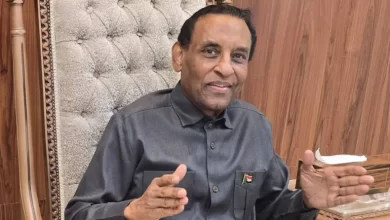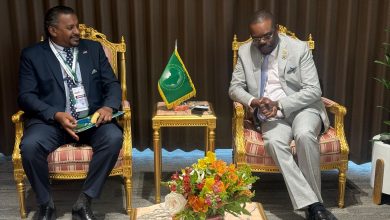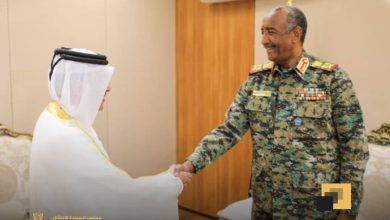
Sudan Events – Follow-ups
The Coordination of Civil Democratic Forces (Taqaddum) has reaffirmed its rejection of forming an exiled or parallel government. Meanwhile, Taqaddum’s Deputy Chairman, Al-Hadi Idris, has opposed the statement made by the coalition’s official spokesperson, who rejected the establishment of such a government.
Taqaddum’s spokesperson, Dr. Bakri Al-Jack, stated that the official stance of the Coordination of Civil Democratic Forces has always been against forming an exiled or parallel government.
He pointed out that a proposal to form a government was presented by a faction within the leadership body during its meeting on December 6 of last year. However, there was no consensus on the proposal. The meeting resolved to refer the issue of legitimacy disputes, along with other matters, to the political mechanism, which held several meetings and issued recommendations that were then submitted to the General Secretariat and the leadership body.
Al-Jack explained that in its most recent meeting, the political mechanism agreed to sever ties between entities and individuals insisting on forming a government and those committed to refraining from doing so—whether independently or in collaboration with any of the warring parties. A committee was formed to develop a separation framework that maximizes common ground between the two sides, allowing them to operate independently in political and organizational terms while respecting each other’s choices. He added, “However, the reality is that these divergent positions cannot coexist within a single alliance that opposes the war and remains neutral towards its factions.”
He further stated, “We are aware of the profound impact of the war in driving polarization and division. Yet, the Coordination of Civil Democratic Forces will continue to maintain its neutrality and refuse alignment with any of the warring parties.”
In response, Taqaddum’s Deputy Chairman, Al-Hadi Idris, rejected the spokesperson’s statement opposing participation in forming an exiled or parallel government.
He asserted that the statement circulated in the spokesperson’s name does not reflect the official stance of Taqaddum. It was neither agreed upon by any of the coalition’s accredited bodies nor reached through established organizational channels.
Idris added that Taqaddum has not yet made any decision on the issue of forming a government, as the matter remains under discussion among all stakeholders. He warned that any premature statements issued outside the proper framework represent irresponsible attempts to push certain agendas and do not reflect the collective will of the alliance.
He continued, “We view this rushed statement as an attempt to create division within the coalition, which we strongly reject. The Taqaddum alliance was founded on political consensus among its members, and only they have the right to determine its course. No single party can unilaterally decide the fate of the coalition or issue critical decisions without collective approval.”



